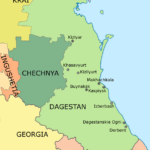Words That Start With Eu
1. Europe
2. Eulogy
3. Euphoria
4. Euclidean
5. Euro
6. Euthanasia
7. Euler
8. Eucalyptus
9. Eureka
10. Eunuch
11. Euphemism
12. Euphonium
13. Eurasia
14. Euphony
15. Eurozone
16. Eugenics
17. Eupnea
18. Eustachian
19. Eulogize
20. Eureka moment
21. Eurocentric
22. Euthanize
23. Euphoric
24. Eurovision
25. Eucalyptus tree
26. Eulogist
27. Eugenicist
28. Eurofighter
29. Euplectella (glass sponge)
30. Eutrophication
More About
Welcome to a fascinating journey through the many extraordinary words that start with “eu.” From the captivating world of etymology to the rich tapestry of languages, words beginning with “eu” offer a unique insight into the human experience and the beauty of our linguistic diversity.
The prefix “eu,” derived from the Greek word “eú,” meaning “good” or “well,” infuses these words with a positive connotation. As we embark on this linguistic exploration, we will marvel at how these words encompass a range of concepts, from virtues and ideals to scientific phenomena and cultural nuances. Each “eu” word invites us to delve deeper into its origins, meanings, and influence on various aspects of our lives.
One splendid example is the word “euphoria.” Just uttering this euphonious term conjures up images of pure bliss and joy. Originating from the Greek words “eu” and “phorein” (to bear or carry), “euphoria” literally means “a good bearing.” It denotes an intense feeling of happiness, contentment, and a state of complete well-being. Exploring the nature of euphoria allows us to reflect on those moments of sheer delight that uplift our spirits and inspire us.
Another enthralling word on our journey is “eulogy,” originating from the Greek terms “eu” and “logos” (speech). Often associated with funerals or memorial services, a eulogy is a heartfelt tribute or speech given to honor and celebrate the life of a deceased person. However, a eulogy can also be a way to express admiration, gratitude, and appreciation for the living. Examining the power of eulogies teaches us the importance of expressing our genuine sentiments and acknowledging the impact someone has had on our lives.
Science enthusiasts will delight in learning about words such as “eukaryote.” Derived from the Greek words “eu” and “karyon” (kernel or nucleus), a eukaryote is an organism whose cells have a defined nucleus enclosed within a membrane. These intricate life forms, including plants, animals, and fungi, exhibit cellular complexity that enables them to perform specialized functions. Studying eukaryotes allows us to delve into the awe-inspiring intricacies of life and marvel at the wonders of the natural world.
As we continue our venture through words beginning with “eu,” we will uncover not only commonly used terms but also some hidden gems. “Euthanasia,” originating from the Greek words “eu” and “thanatos” (good death), ignites spirited debates and ethical discussions regarding the deliberate act of ending one’s life to alleviate suffering. It is a concept that raises profound questions about autonomy, compassion, and the sanctity of life. Exploring euthanasia prompts us to contemplate the balance between personal autonomy and societal responsibility in making life-altering decisions.
Furthermore, we encounter terms like “euphemism,” which originates from the Greek words “eu” and “pheme” (speech). A euphemism involves substituting a mild or indirect expression for one that is considered harsh, offensive, or taboo. These linguistic devices play a crucial role in communication, not only softening the impact of certain words but also shaping our perceptions and interactions. Exploring euphemisms illuminates how language adapts to societal norms, and how our choice of words can either bridge understanding or create ambiguity.
In this rich tapestry of words, we will journey through various fields such as psychology, literature, philosophy, and beyond. Words beginning with “eu” offer us glimpses into the intricacies and nuances of human thought, emotions, and the diverse world we inhabit.
Join me on this linguistic odyssey through words starting with “eu.” Let’s unravel the meanings, appreciate the power they hold, and celebrate the beauty of language together. In doing so, we will forge a deeper connection with the words that shape our experiences and ignite our imagination.
FAQs:
Q1: What does “euphoria” mean?
A1: “Euphoria” refers to an intense feeling of joy, happiness, or excitement.
Q2: What is an “eukaryotic cell”?
A2: An “eukaryotic cell” is a type of cell that possesses a nucleus and other membrane-bound organelles.
Q3: What is “euthanasia”?
A3: “Euthanasia” is the act of intentionally ending a person’s life to relieve their suffering, typically in cases of terminal illness or severe pain.
Q4: What is “eugenics”?
A4: “Eugenics” is the study or belief in improving the genetic quality of the human population by selective breeding or other interventions.
Q5: What is an “eucalyptus tree”?
A5: An “eucalyptus tree” is a tall evergreen tree native to Australia, known for its aromatic leaves and ability to tolerate drought.
Q6: What is “eutrophication”?
A6: “Eutrophication” refers to the excessive growth of algae and other aquatic plants due to increased nutrient levels in a body of water, often resulting in environmental problems.
Q7: What is “Eurozone”?
A7: “Eurozone” refers to the group of countries that have adopted the euro as their official currency, currently consisting of 19 European Union member states.
Q8: What is “euphemism”?
A8: “Euphemism” is a mild or indirect word or expression used in place of a more direct, harsh, or offensive one to avoid discomfort or offense.
Q9: What is an “eutectic mixture”?
A9: An “eutectic mixture” is a mixture of substances that melts and solidifies at a constant temperature, rather than over a range of temperatures.
Q10: What is “eukaryogenesis”?
A10: “Eukaryogenesis” is the hypothetical process of how eukaryotic cells evolved from prokaryotic cells, leading to the emergence of complex life forms.
















